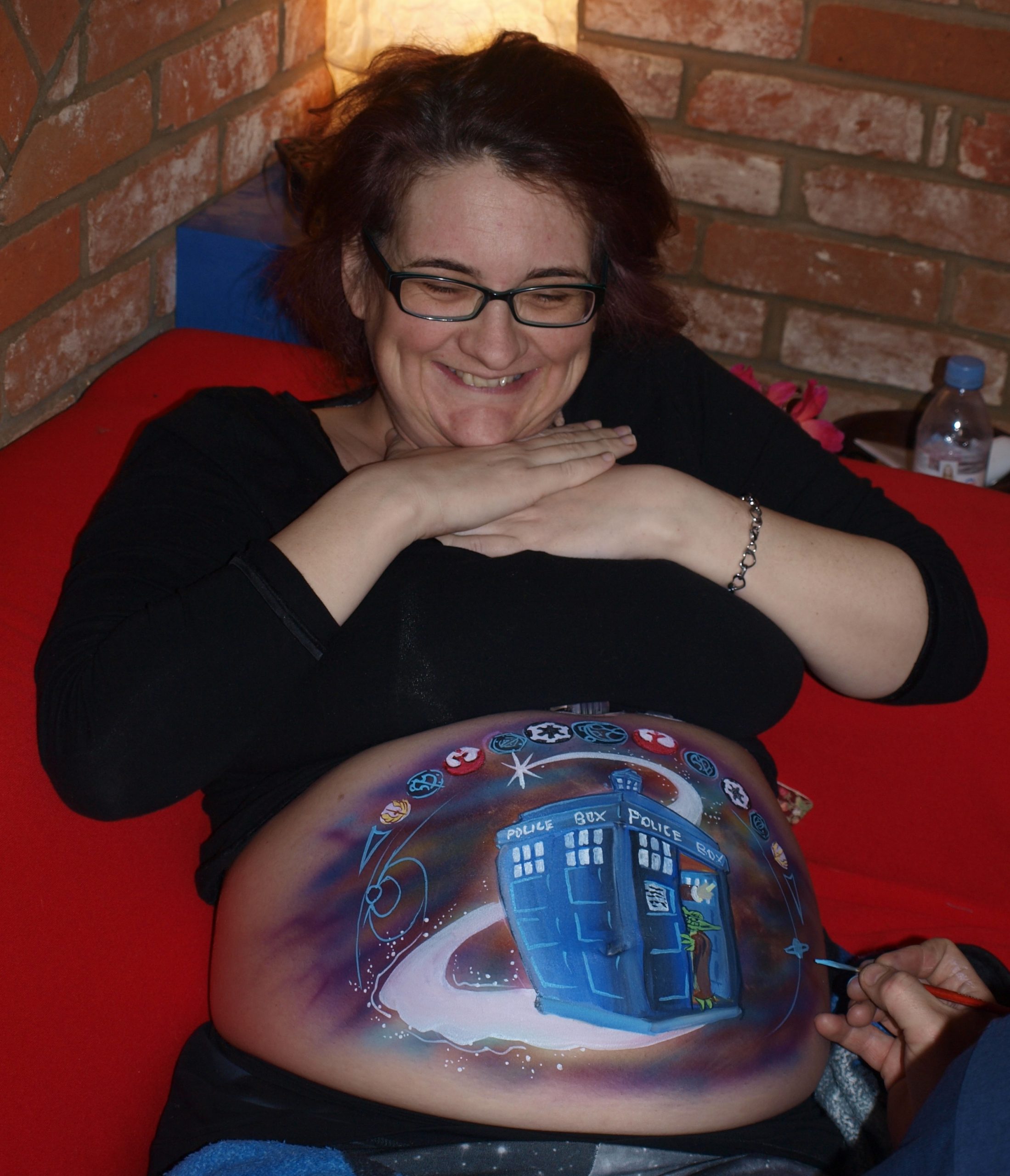
A body artist from Norwich is the first mum to give birth naturally with an artificial pancreas.
Treating diabetes in pregnancy can be particularly challenging because hormone levels are constantly changing and blood sugars can be difficult to predict. I study new treatments for diabetes in pregnancy and it's great to see our research helping mums have healthier pregnancies.
Dr Zoe Stewart
The first natural birth to a mother with diabetes who has been fitted with an artificial pancreas devised by researchers, including a Gates Cambridge Scholar, took place this week.
Body artist Catriona Finlayson-Wilkins from Norfolk has Type 1 Diabetes, but used an artificial pancreas to produce insulin throughout her pregnancy. She gave birth to a boy at Norfolk and Norwich University Hospital on Tuesday. She is the first mother to use the device to give birth outside the main research site at Cambridge University Hospitals. Three mothers have previously given birth, but all via caesarian section. Women who have diabetes in pregnancy face higher rates of birth defects, oversized babies, pre-term delivery and stillbirth than other pregnant women.
It is estimated that up to 5% of women giving birth in England and Wales have either pre-existing diabetes or gestational diabetes and the number with Type 1 and Type 2 diabetes is rising. The technology is being trialled by the Closed Loop in Pregnancy study, based at the Metabolic Research Laboratories at the University of Cambridge The pancreas is the organ which produces insulin, which is one of the main hormones that help to regulate blood glucose levels.
In Type 1 diabetes, the beta cells that produce insulin are attacked by the body's immune system so an artificial pancreas can help to maintain insulin production, keeping the symptoms of diabetes at bay. The artificial pancreas device system (also known as an APD system, AP or APDS) is a small, portable medical device that is being designed to carry out the function of a healthy pancreas in controlling blood glucose levels in women with Type 1 diabetes. It uses digital communication technology to automate insulin delivery. An APD system is worn externally on the body, and is made up of three functional components: continuous glucose monitoring, a computer algorithm (mathematical instructions which calculate the insulin dose), developed by Director of Research Dr Roman Hovorka, and an insulin pump. These three components are termed an artificial pancreas or ‘closed loop’.
Full results of the study are expected to be published later this year. If the findings are positive, this may pave the way for the technology to become available for more women with diabetes who conceive in the future.
Dr Helen Murphy, Senior Research Associate/Honorary Consultant Physician at the Metabolic Research Laboratories and the Principal Investigator of the study, says that the first natural birth using the technology represents an exciting step forward in the treatment of diabetes in pregnancy. She said: "The artificial pancreas is an exciting new technology that may help us to treat diabetes in pregnancy and create a group of healthier mothers and babies.”
Dr Zoe Stewart [2013], a Gates Cambridge Scholar and Clinical Research Fellow on the study, said: “Treating diabetes in pregnancy can be particularly challenging because hormone levels are constantly changing and blood sugars can be difficult to predict. I study new treatments for diabetes in pregnancy and it's great to see our research helping mums have healthier pregnancies.”
The research has been supported by Gates Cambridge, the National Institute for Health Research and Diabetes UK.












